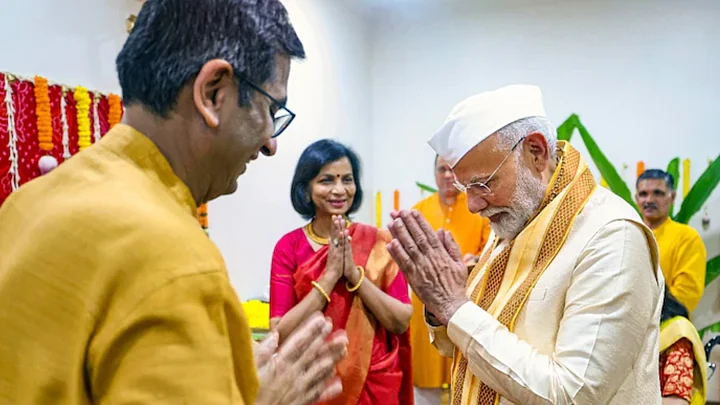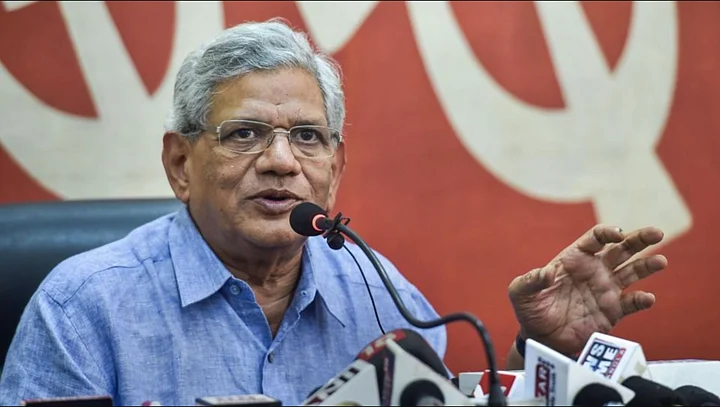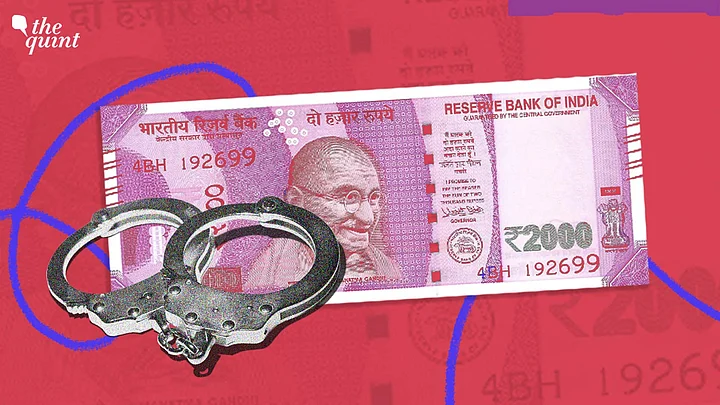Manipur: Dark Side of the Moon?
Congress leader and former Finance Minister P Chidambaram, in his column for The Indian Express, reflects on the situation in Manipur in the last one year.
"When I wrote last year, the portents were ominous. I had said, ‘It is the beginning of ethnic cleansing’... Every word that I wrote has, regrettably, come true," he writes.
"It was never easy to maintain the peace and carry on a government in Manipur. It has become unimaginably worse thanks to the callousness of the central government and the incompetence of the state government, both run by the BJP. The Prime Minister of India has perhaps realised that his journey to Manipur, a state in the Union, will be as perilous as a journey to the dark side of the moon."P Chidambaram
Renewing Commitment to Democratic Principles
Writing for the Hindustan Times on the occasion of International Day of Democracy, Lok Sabha Speaker Om Birla traces India's democratic heritage and its ongoing evolution into a modern democracy despite significant challenges.
"It (International Day of Democracy) is also an appropriate moment for us, all stakeholders, to reflect and re-dedicate ourselves to upholding the values of our parliamentary democracy by fostering open dialogue, encouraging civic engagement, and holding institutions accountable," he writes.
"In order to strengthen the democratic values in our country and other countries, it is crucial that we give our youth adequate opportunities to ensure their active participation in democratic processes. AI (Artificial intelligence) and technology can play an important part in this."Om Birla
Arvind Kejriwal’s Bail: From Supreme Court, a Limited Relief
Arvind Kejriwal's bail order in the excise policy case "is at best a source of limited relief and at worst, evidence of a completely dysfunctional criminal justice system," writes advocate Alok Prasanna Kumar in his piece for The Indian Express.
"Justice Bhuyan’s judgment is more noteworthy for two reasons — the illegality of Kejriwal’s arrest, and the CBI’s attempt to use procedure as punishment. In saying so, Justice Bhuyan swims against the tide in refusing to succumb to a certain malaise that has gripped a section of India’s judiciary — a preference for toeing the government’s line in high-profile criminal cases."Alok Prasanna Kumar
In Search of a New Federal Bargain
"India's delicate federal consensus is back in contention", writes social policy expert and president of Centre for Policy Research, Yamini Aiyar, in the Deccan Herald.
She goes on to argue that the widening economic and developmental gap between the relatively prosperous southern and western regions, and the poorer yet more populous northern and eastern states is putting a strain on traditional principles of redistributive tax-sharing.
"The challenge raised by India’s widening economic disparities have been exacerbated by the Union government’s blatant attempts to deepen fiscal centralisation. Despite two successive FCs’ recommendations to deepen fiscal devolution by mandating that the states’ share in the divisible pool of taxes be enhanced from 32 percent to 42 percent, the Union government has avoided fulfilling this recommendation. Actual transfers to states, as a percentage of gross tax revenue, have been in the range of 32-35 percent since the implementation of the 14th FC recommendations."Yamini Aiyar
Is Rahul Riding the Khalistan Tiger?
In his piece for The New Indian Express, columnist and former member of Rajya Sabha Balbir Punj writes about the potential dangers of Rahul Gandhi's recent remarks on the ‘existential threat to Sikhs in India.’
He writes, "Addressing a meeting in Washington DC during his three-day US visit, Rahul said, 'The fight is about whether he as a Sikh is going to be allowed to wear his turban in India, and he as a Sikh is going to be allowed to wear a kada in India, or he as a Sikh is going to be able to go to a gurudwara—that’s what the fight is about, and not just for him, for all religions.'"
"To what extent Rahul’s irresponsible remarks would serve his political ends is difficult to guess, but two consequences will undoubtedly follow. One, his rants will be used by the anti-India pack, including Pakistan’s ISI and its proxies, to besmirch India’s image globally. It would also provide impetus to the Khalistan movement, which has little base within the country."Balbir Punj
What Taylor Swift and Oasis Can Teach Us About the Economy
"The Bowie effect is now one of the most potent economic and societal, as well as musical, forces on the planet," writes economist Andy Haldane in the Financial Times as he discusses the effect that music, particularly that of popular artists, has on the economy.
He also says that historically, especially at times of uncertainty and economic turning points, "much of the variation in economic activity can be explained by sentiment rather than fundamentals. Stories shape spending."
"Touring now makes more money than album sales and downloads, with the Oasis tour boosting the relaunch of the 1994 album Definitely Maybe and a surge in streaming and downloads. This shift, from product to performance, was predicted over 20 years ago by the little-known economic theorist David Bowie. The late Princeton economist Alan Krueger called it “Bowie Theory” in his book Rockonomics. Its power has grown to the point where there was an identifiable “Eras Tour” effect on GDP in a number of the smaller countries Taylor Swift toured this year, including Singapore and Sweden."Andy Haldane
Men, Masculinity and Gender Justice for All
In her piece for the Hindustan Times, Lalita Panicker argues that it is important for men and boys to be actively involved in countering all forms of abuse.
She writes, "Challenging patriarchal mindsets cannot succeed without involving men in the mix to redraw notions of gender roles and stereotypes."
"Men Against Violence and Abuse (MAVA) has been trying to do this for the past 31 years, engaging in critical conversations about masculinity and that absurd concept that “boys will be boys”, something put forward by some of our elected representatives when they have no real answer to why women are targeted so often...The manual may not have all the answers but it is a promising start to look at how men can be empowered to join the movement against violence and harassment."Lalita Panicker
The New ‘Green Revolution’ Will Not Feed India
Columnist Swaminathan S Anklesaria Aiyar, in his piece for the Times of India, critiques the central government's push for the revival of traditional, 'zero budget natural farming' techniques.
"Farmers are the best judges," he writes.
"When the govt introduced high-yielding Kalyan Sona wheat and TN-1 rice in the 1960s, farmers adopted the wheat variety with enthusiasm but rejected the rice variety. After a few years, the govt introduced IR-8 from the International Rice Research Institute, which had succeeded abroad. But Indian farmers showed limited interest. Only with the launch of IR-20 in the mid-1970s did high-yielding rice take off in India. More recently, Bt cotton became a huge hit with farmers even though they had to pay fancy prices in the black market for a variety that was illegal at the time. We see no such rush by farmers into natural farming. It is too early to call this a failure, but the signs are not promising."Swaminathan S. Anklesaria Aiyar
Wazirabad's Wonder
Journalist and author Alka Raza's piece in the Tribune is an ode to the 700-year-old Wazirabad bridge built by the third Sultan of the Tughlaq dynasty, Firoz Shah Tughlaq (1351-1388), to connect Delhi with UP and Punjab.
"It has survived the onslaught of time for one simple reason: it was built by a ruler whose heart and soul lay in carefully-planned buildings and conservation," she writes.
"Today, the Yamuna no longer flows beneath the bridge. Instead, filth and overgrown shrubs are all you can see...Despite its heritage status, Wazirabad bridge lies in a dilapidated condition; except for its occasional tarring, not much has been done."Alka Raza
More From The Quint
(At The Quint, we question everything. Play an active role in shaping our journalism by becoming a member today.)




.jpg?auto=format%2Ccompress&fmt=webp&width=720)
